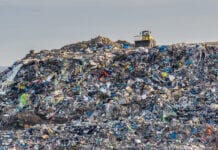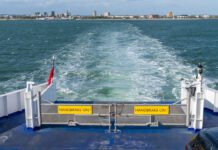A new paper ‘Sailing on Solar’, commissioned by Environmental Defense Fund Europe and developed by Ricardo, presents a vision of how international shipping can meet its target of at least halving emissions by 2050 – while also helping developing nations benefit from the emerging clean energy economy.
The paper focuses on green ammonia produced from surplus renewable electricity, one of several potential fuels for maritime transport that do not produce greenhouse gases. Green ammonia is a substitute to fossil fuels that can be used in modified shipping engines and in fuel cells.
Production of the fuel requires renewable electricity at a large scale. Demand for green ammonia could therefore unleash investment opportunities in sustainable industrial infrastructure and renewable plants, particularly in developing countries.
The paper takes a careful look at the issues that need to be addressed both on ships and onshore to make green ammonia a viable bunker fuel and highlights that the only barrier is cost.
The International Maritime Organization is currently considering new policies to enable achievement of its global climate goals, with the potential to introduce incentives to overcome the final financial hurdles and unlock trillions of dollars of new investment.
The paper uses Morocco as a case study to demonstrate how countries, with untapped renewable energy potential, could benefit by establishing a green ammonia supply chain for the marine sector.
“Emissions-free shipping can be the engine that drives green development across the world,” said Aoife O’Leary, senior legal manager at Environmental Defense Fund Europe. “The abundance and falling costs of untapped renewable resources like solar and wind energy in developing countries make the production of maritime fuels that emit no greenhouse gases a big potential investment opportunity where such production is undertaken by additional renewable capacity.
And shippers can look forward to a future running on the air, water, wind and sunlight that go into manufacturing new fuels like green ammonia.”
Chris Dodwell of Ricardo added, “Ricardo is proud to have worked with the Environmental Defense Fund Europe to develop this innovative research paper. It has enabled us to utilize our experience in climate change, energy and engineering to identify opportunities which will significantly reduce shipping emissions, thereby minimising the sector’s impact on the environment and helping to meet global climate change goals.”








